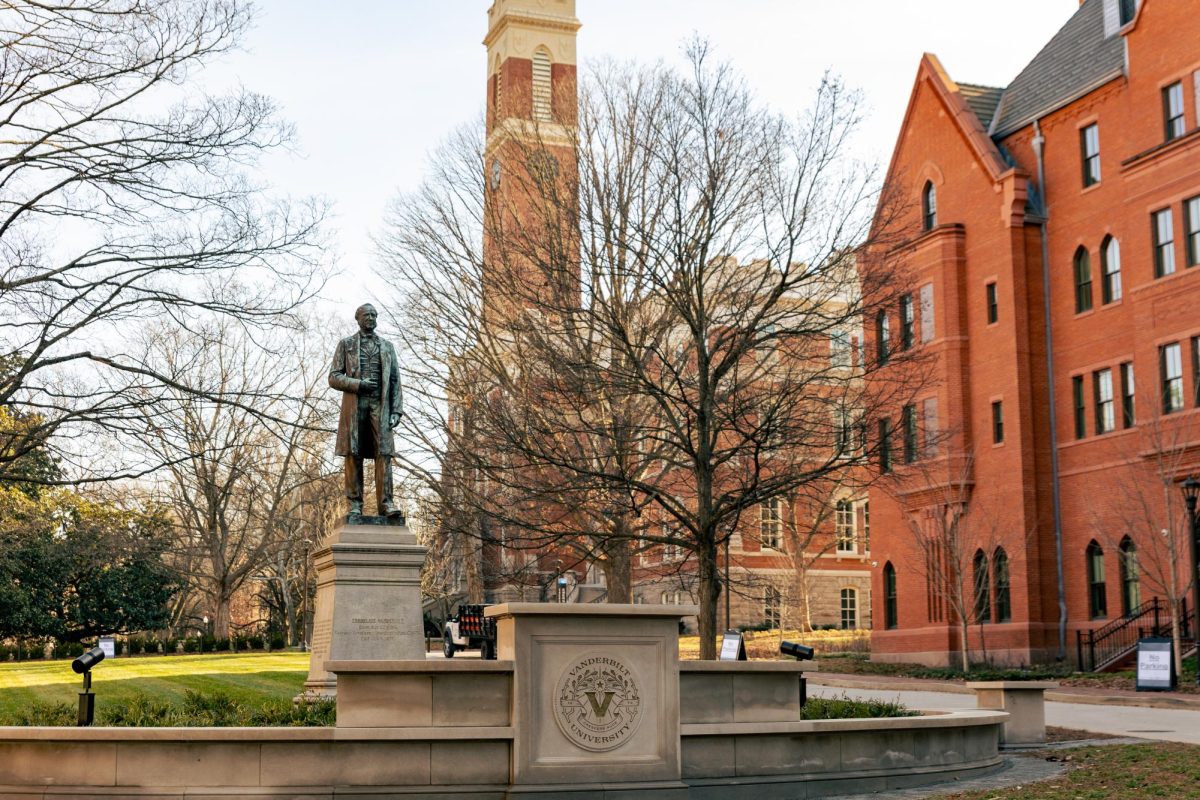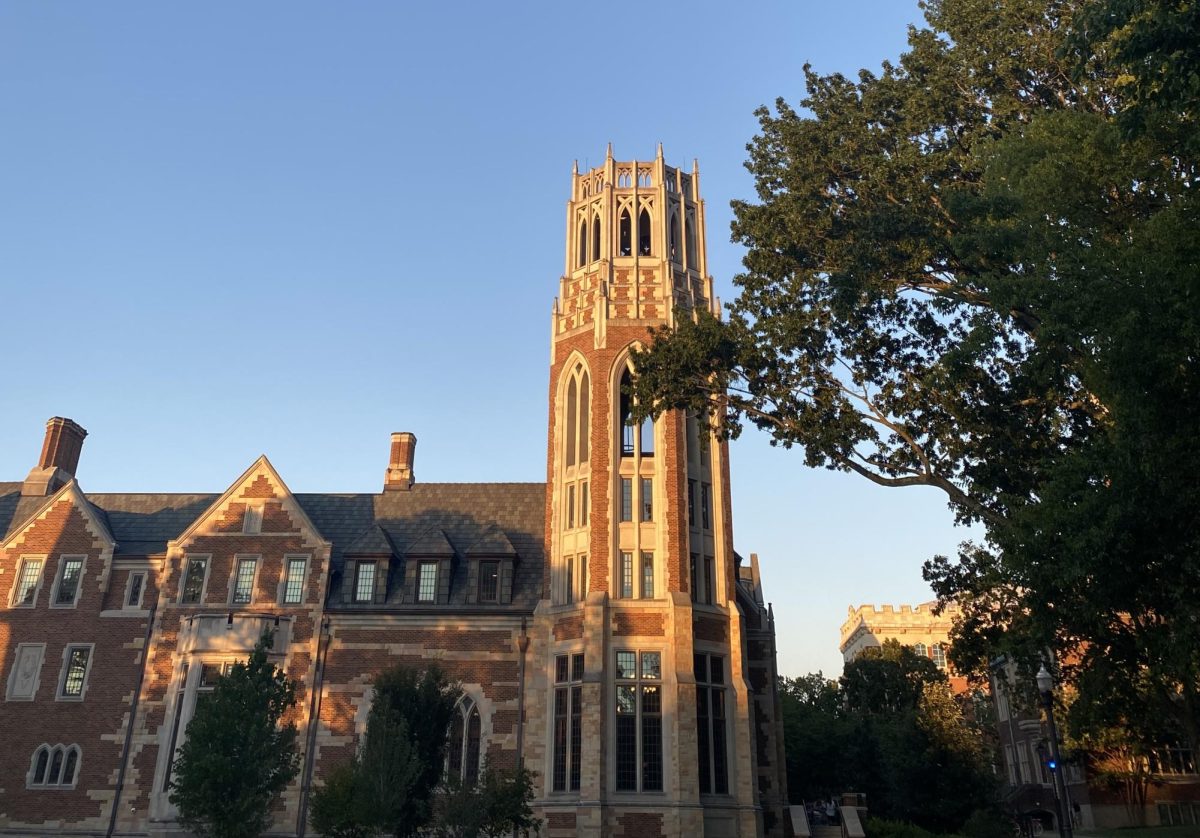Vanderbilt announced an expansion to its “Opportunity Vanderbilt” financial aid program, pledging to provide full-tuition scholarships without loans to all students with families making less than $150,000 annually.
Though the university has guaranteed coverage of the full cost of tuition, the majority of families below this income threshold will receive financial aid that exceeds this cost, according to the press release. Additionally, many students with family incomes above $150,000 will continue to receive financial assistance.
Vice Provost for University Enrollment Affairs and Dean of Admissions and Financial Aid Douglas Christiansen said the rationale behind this expansion was to make clear the university’s existing financial aid policy and emphasize Vanderbilt’s accessibility for low-income students and their families.
“We wanted to communicate affordability to families in a way that makes sense to them and provides a tangible expectation of what families with incomes of $150,000 and less could qualify for in terms of financial assistance,” Christiansen said in an email to The Hustler.
For the 2023-24 school year, the median aid awarded to first-year students with family incomes ranging from $125,000 to $150,000 was $70,359, exceeding the $61,618 cost of tuition estimated by the Office of Student Financial Aid. The median award for students with parents or guardians making less than $50,000 annually was $90,641, a larger amount than the $89,590 estimated annual total cost of attendance. This estimate included a wide range of expenses, from housing and food to the student services fee and personal expenses.
Opportunity Vanderbilt is not limited to students from families making less than $150,000, as students with family incomes between $150,000 and $175,000 received a median annual award of $62,654 for the 2023-24 school year. For students with family incomes above $200,000, the median award was $39,937.
Other institutions have implemented similar financial aid policies. Brown University, Dartmouth College and the University of Chicago cover the full cost of tuition for students with family incomes below $125,000. Columbia University, like Vanderbilt, covers full tuition for students with family incomes below $150,000.
“Vanderbilt already has one of the most competitive financial aid programs in the country, meeting 100% of demonstrated need without loans,” Christiansen said. “This new initiative builds upon this commitment and maintains Vanderbilt’s place as a leader in making a world-class education affordable.”
Started by Chancellor Nicholas Zeppos, Opportunity Vanderbilt has given over $2.6 billion in undergraduate financial aid since its 2009 inception. The program has greatly expanded over the years, with the university’s 2023 financial report revealing that it provided $244 million in undergraduate financial aid during fiscal year 2023 — a 59% increase from its value of $153 million in 2013. Aid is not limited to undergraduates, as the university provided $64 million and $58 million in aid last year for professionals and graduate students, respectively.
VSG Economic Inclusivity Committee Chair Hananeel Morinville, a junior, declared her support for the financial aid expansion but said there remains progress to be made in order to promote socioeconomic diversity at Vanderbilt.
“This is great, and I love that Vanderbilt is championing equity for families making less than $150,000. Access to higher education is more straightforward for some than it is for others,” Morinville said in an email to The Hustler. “I think there is still work to be done on campus to support students whose families are coming from different socioeconomic backgrounds, but this is definitely a step in the right direction.”
The Economic Inclusivity Committee has begun initiatives to support this diversity, such as a first-year early move-in program for first-generation students to provide them with additional time to adjust to campus life. VSG also recently announced a fund providing graduation regalia for seniors who qualify for need-based financial aid.
Morinville voiced her desire to expand economic accessibility and noted the importance of university administration in achieving this goal.
“We have a lot of recommendations, but sometimes it’s out of our hands and something that needs to be addressed on the institutional level,” Morinville said.
While Opportunity Vanderbilt and VSG initiatives have provided financial support, students from wealthier backgrounds are still far more likely to attend the university. A 2017 study by the New York Times found that Vanderbilt students had a median family income of $204,500, ranking 20th out of all colleges in the country. Additionally, 23% of Vanderbilt students come from the top one percent of the national income distribution, ranking fourth among all colleges and first among elite colleges. This disparity has continued in more recent years, as only 10% of the graduating class of 2023 reported household incomes of below $50,000. Rather, the majority of these students had household incomes of over $200,000, and more than 25% had household incomes of over $500,000.
Christiansen expressed support toward achieving increased economic inclusivity at Vanderbilt, saying the university wants all accepted students to enroll “without regard to their financial background.”
“Our challenge continues to be helping students and their families understand that we make a Vanderbilt education affordable,” Christiansen said. “This is especially a challenge when so many find the financial aid system so confusing, and perceptions of access remain a barrier. We hope this new program will help additional lower-income students consider Vanderbilt.”




















